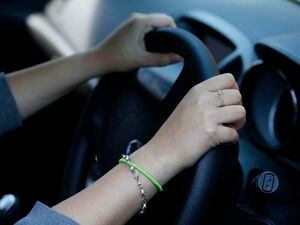One in 10 young driver insurance policies have parent’s name as main motorist
New research finds many parents have insured their child’s car in their own name – known as ‘fronting’ – to save money

One in 10 parents of young drivers risk a criminal record for pretending to be the main driver on the car insurance policy, new research has uncovered.
A survey of 1,000 parents of drivers aged 17 to 25 found that 10 per cent admitted to insuring their son or daughter’s car in their own name to save money on premiums.
The tactic sees a parent insure themselves as the primary driver on a vehicle, despite their offspring being the one using the car most often, with the youngster registered as a named driver instead.
However, it is technically insurance fraud and, if uncovered, the policy will be invalid and the policy holder could end up with a criminal record, as well as having to pick up the cost of third party claims that are still settled by the insurance company – which could cost them hundreds of thousands of pounds.
Lee Griffin, founding member of comparison site GoCompare, which was behind the survey, said: “Unfortunately, many parents are putting themselves at risk of picking up a criminal record for the sake of reducing their child’s car insurance premiums. There may not appear to be any harm in insuring a child’s car in a parent’s name, but ‘fronting’ is illegal nonetheless.
“Car insurance premiums for new drivers can be high compared to those offered to more experienced drivers but there’s a good reason why. According to the ABI, drivers aged between 17 and 20 are twice as likely to make an insurance claim as other drivers and the cost of their claims can be up to three times higher than the average.”
The survey also discovered that 34 per cent of people would consider employing the tactic to drive down new driver premiums.
The process is usually discovered when a claim is made. Insurers will investigate the details of an accident, at which point they usually find that the son or daughter has been driving the vehicle more often than the parent.





